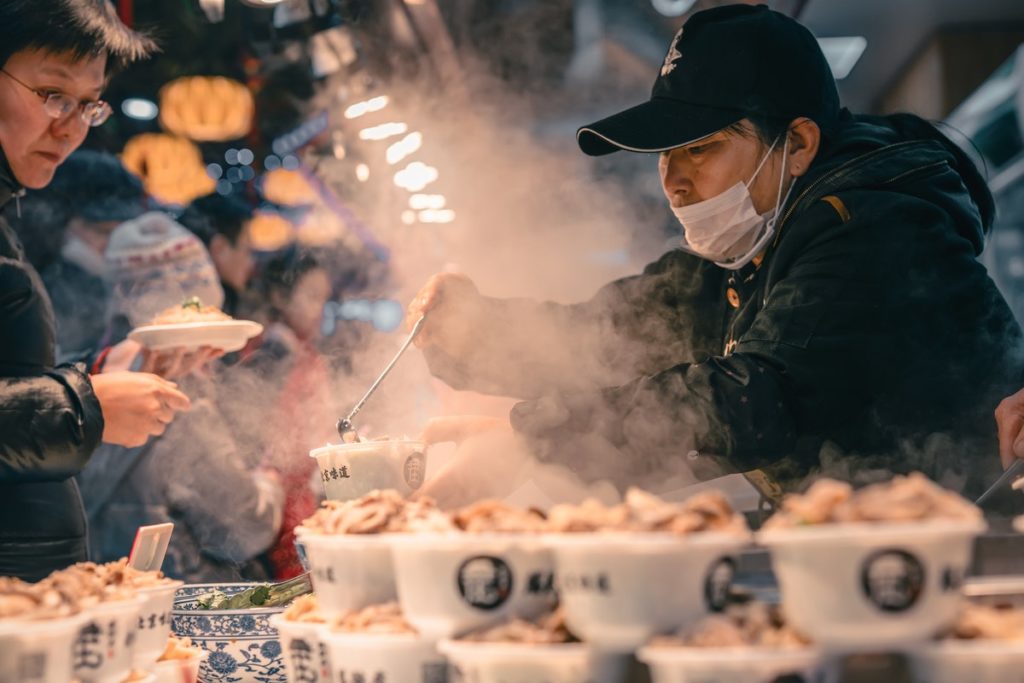Street Food Hygiene: 5 Common Problems for Traders

There are a startling number of street traders in the UK. Every festival, high street, farmer’s market and shopping centre seems to have a stall, van or kiosk selling anything from sandwiches to sushi. It’s a multi-million pound industry which employs people from all cultures. Of course, street traders can fall victim to the same consequences of poor food hygiene as any other food business. Due to some unique problems, however, street food hygiene can be quite a different challenge to face.
1. No hot water supply
You must have hot water for washing, but mobile food preparation and hot water can sometimes be a bad mix. Fortunately, there are a whole host of options for powering a street food stall or truck, depending on your budget and ecological concerns. Essentially, there is no leeway here; if you don’t have access to hot water, you shouldn’t be serving.
2. Invasion of the insects
Wasps and flies are a particular problem. If you haven’t been stung a couple of times by the end of any summer weekend, you’re lucky. An ultraviolet zapper will help, but it will need emptying regularly. ‘Cover everything that can be covered,’ is probably the safest option. Safe storage is a simple yet vital task, which you and your staff should practice properly in the interests of appropriate street food hygiene.
3. Keeping your cool
One common cause of food poisoning is a lack of adequate temperature control. Storing food above 5°C is entering the temperature ‘danger zone’ for bacterial growth. Add humidity into the mix and you have a very short safety margin. If you have a fridge, use it. Cool boxes and insulated storage will work, but only as a temporary option. For safety, you are supposed to keep anything that needs refrigeration at below 5°C.
4. Keeping it warm
Similarly, when hot food falls beneath 63°C, it also slips into this ‘danger zone’. Keeping food warm is difficult for traders because customers do not usually want to wait for service. Pre-cooking is the obvious solution, but you also want to avoid wastage. Sadly, there is no magic formula here, but if you cannot guarantee to keep food at the right temperature then you simply must not sell it – it is the law.
5. Lack of space
In a cramped environment, cross-contamination is an ever-present issue. No matter how difficult it is logistically, though, keeping raw meat away from other foods during preparation is vital. Remember, never wash raw chicken or poultry because you can splash campylobacter onto the sink and other surfaces. On the other hand, do wash all fruits and vegetables, particularly the leafy greens. As healthy as they look, green leaves are one of the most common ways to spread food poisoning.
Street Food Hygiene can be a troublesome beast to tame but is entirely manageable with the correct training. We offer a RoSPA-accredited Level 2 Food Hygiene for Catering course which should cover all you need to comply with the law.
